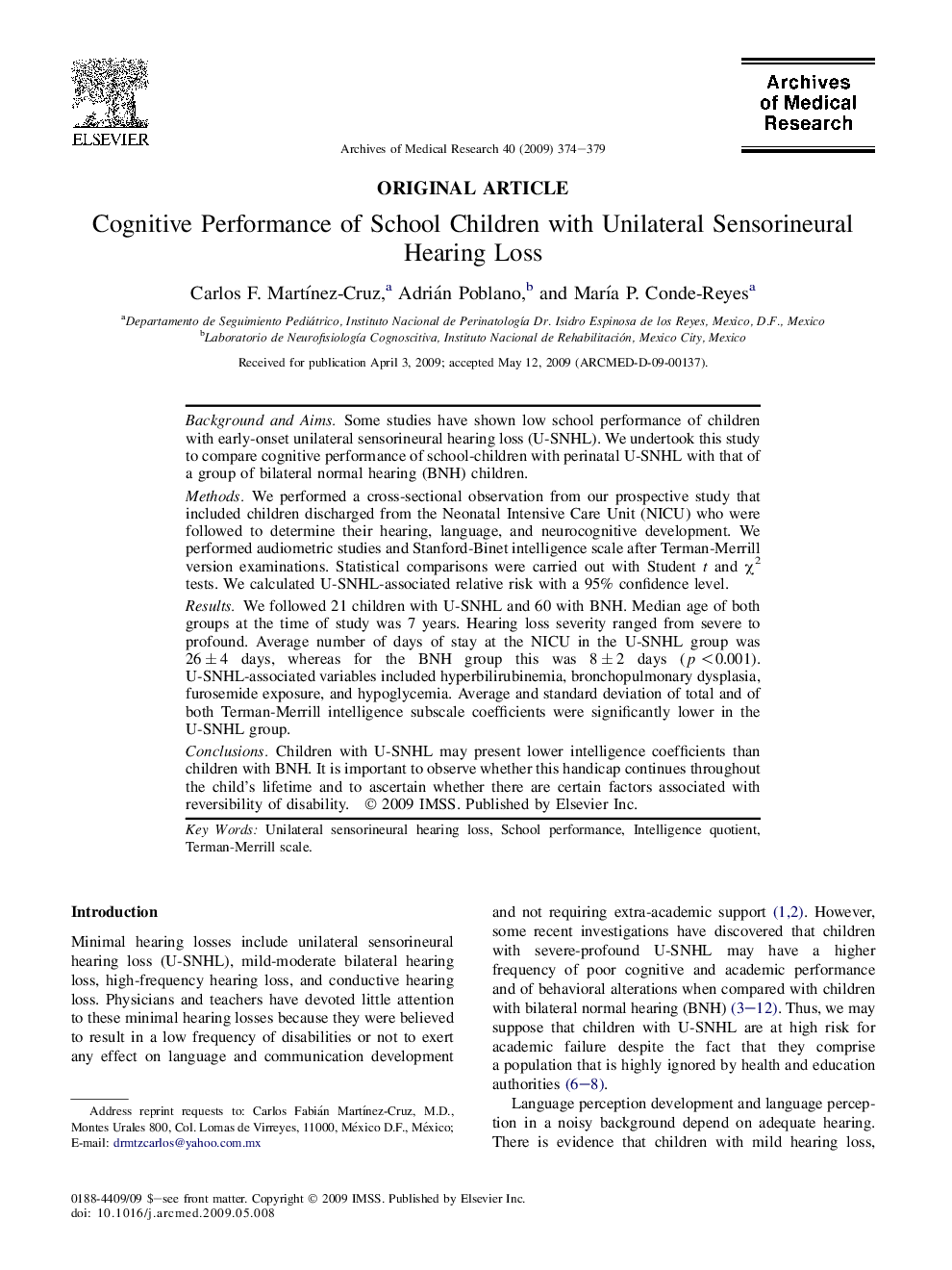| Article ID | Journal | Published Year | Pages | File Type |
|---|---|---|---|---|
| 3446861 | Archives of Medical Research | 2009 | 6 Pages |
Background and AimsSome studies have shown low school performance of children with early-onset unilateral sensorineural hearing loss (U-SNHL). We undertook this study to compare cognitive performance of school-children with perinatal U-SNHL with that of a group of bilateral normal hearing (BNH) children.MethodsWe performed a cross-sectional observation from our prospective study that included children discharged from the Neonatal Intensive Care Unit (NICU) who were followed to determine their hearing, language, and neurocognitive development. We performed audiometric studies and Stanford-Binet intelligence scale after Terman-Merrill version examinations. Statistical comparisons were carried out with Student t and χ2 tests. We calculated U-SNHL-associated relative risk with a 95% confidence level.ResultsWe followed 21 children with U-SNHL and 60 with BNH. Median age of both groups at the time of study was 7 years. Hearing loss severity ranged from severe to profound. Average number of days of stay at the NICU in the U-SNHL group was 26 ± 4 days, whereas for the BNH group this was 8 ± 2 days (p <0.001). U-SNHL-associated variables included hyperbilirubinemia, bronchopulmonary dysplasia, furosemide exposure, and hypoglycemia. Average and standard deviation of total and of both Terman-Merrill intelligence subscale coefficients were significantly lower in the U-SNHL group.ConclusionsChildren with U-SNHL may present lower intelligence coefficients than children with BNH. It is important to observe whether this handicap continues throughout the child's lifetime and to ascertain whether there are certain factors associated with reversibility of disability.
